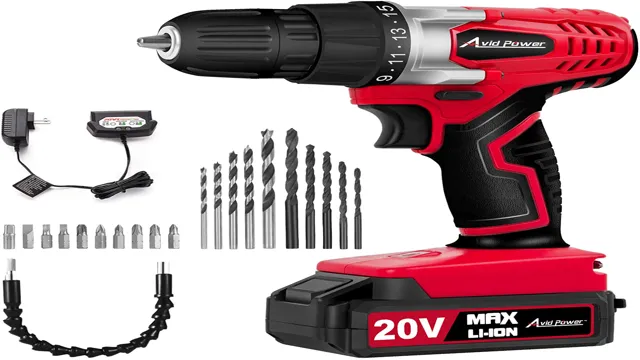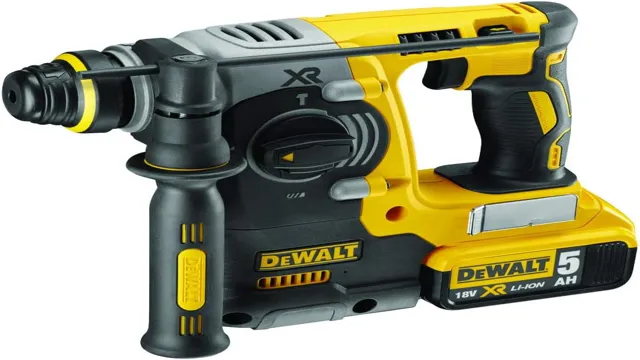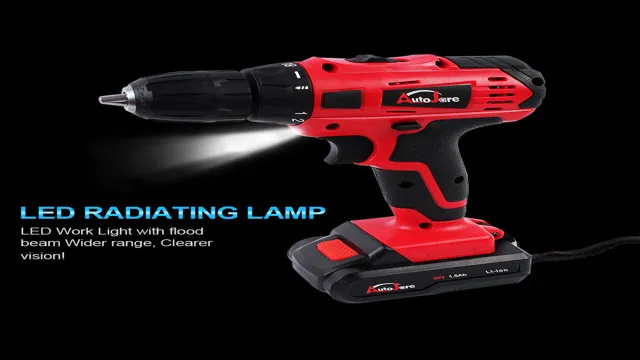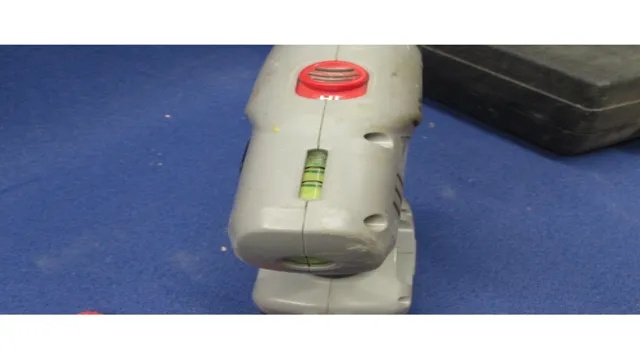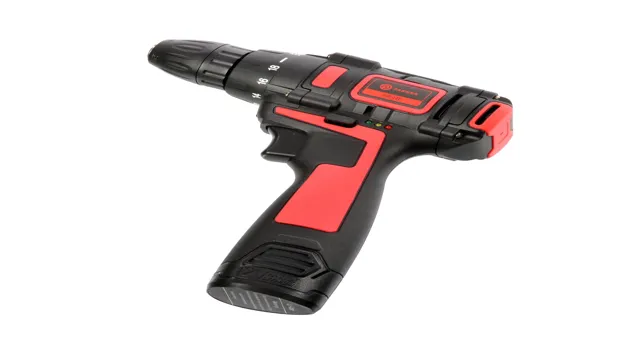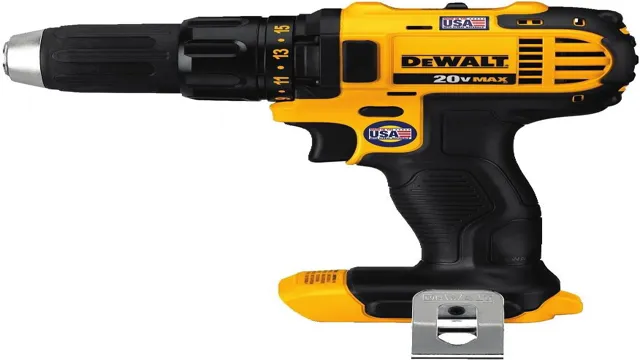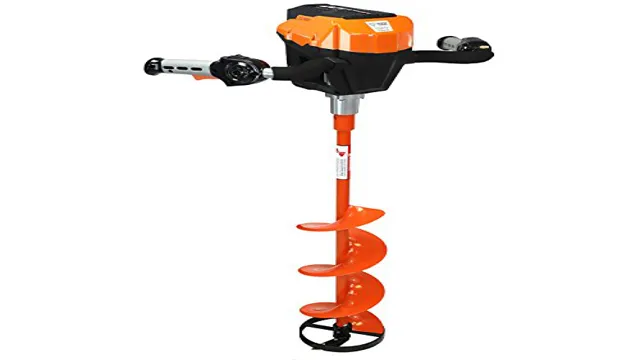What to Do with Old Cordless Drill Batteries: Eco-Friendly Options

Do you have old cordless drill batteries lying around and don’t know what to do with them? Don’t throw them away just yet! These batteries have toxic chemicals that can harm the environment if not disposed of correctly. You’d be surprised to learn that there are a variety of ways to repurpose or recycle these batteries to benefit both the environment and your wallet. Instead of trashing them, consider donating or selling them to organizations that can refurbish and resell the batteries.
You can also refurbish them yourself by replacing the cells or building battery packs. Another option is to recycle them at a local facility that specializes in the disposal of toxic materials. As you can see, there are many viable options for old cordless drill batteries that serve a purpose beyond just being mere waste.
So, before you toss those old batteries in the trash bin, take some time to think about how you can repurpose or recycle them properly, knowing that you’re doing your part for the planet.
Why Dispose of Them Responsibly?
If you’re wondering what to do with old cordless drill batteries, it’s important to dispose of them responsibly. These batteries contain toxic chemicals such as lead and cadmium, which can harm the environment and human health if not disposed of properly. Simply throwing them in the trash or recycling bin can lead to them ending up in a landfill or being incinerated, releasing harmful chemicals into the air, soil, and water.
Instead, take your old cordless drill batteries to a designated battery recycling center. Many hardware stores and electronic stores have drop-off bins for old batteries. Not only does this ensure proper and safe disposal of the batteries, but it also allows for the valuable materials within the batteries to be reused, reducing the demand for new resources and minimizing environmental impact.
By disposing of old cordless drill batteries responsibly, you’re doing your part to protect the planet and safeguard human health.
Environmental hazards of batteries
As our reliance on battery-powered devices continues to soar, the hazards associated with these ubiquitous power sources become increasingly apparent. Batteries contain toxic chemicals such as lead, mercury, and cadmium, which can seep into the soil and groundwater if not disposed of properly. These substances can cause serious harm to the environment, as well as to human health.
For instance, lead exposure can lead to developmental disabilities in children, while cadmium exposure increases the risk of cancer. With so much at stake, it’s crucial to dispose of batteries responsibly. This means taking them to designated recycling centers or drop-off locations instead of tossing them in the trash.
By doing so, we can help reduce the environmental impact of battery waste and keep our communities safe and healthy.

Legal regulations on battery disposal
Battery disposal regulations As we continue to increase our reliance on technological devices, batteries have become a ubiquitous part of our daily lives. While they are convenient and useful, they can also pose a significant environmental threat if not disposed of correctly. Many countries have put in place legal regulations on battery disposal to reduce the impact of hazardous chemicals and heavy metals on the environment.
In the EU, for example, the Batteries Directive sets out requirements for the collection, treatment, and recycling of batteries. The United States has also implemented the Battery Act, which establishes guidelines for the safe disposal of consumer batteries. Proper battery disposal is essential as batteries can pose a hazard to wildlife, pollute ecosystems, and even cause fires in landfills.
By disposing of batteries responsibly, we can minimize their impact on the environment and ensure that they are recycled efficiently.
Ways to Recycle or Repurpose Batteries
When it comes to old cordless drill batteries, there are several options to consider for recycling or repurposing. One option is to recycle them at a local retailer or recycling center that accepts batteries. Another option is to repurpose them for use in other household items, such as flashlights or remote controls.
Additionally, some companies offer battery refurbishing services that can extend the life of old batteries and save you money. So, rather than throwing out those old batteries, consider these options to give them a new life and help reduce waste. With a little creativity, you can find new uses for these batteries and do your part to protect the environment.
How to find recycling centers near you
When it comes to recycling or repurposing batteries, there are various options available to anyone willing to make a positive contribution to the environment. First and foremost, you should find recycling centers near you that accept batteries. You can easily do this by conducting a quick online search using keywords such as “battery recycling centers near me.
You May Also Love:
” Once you have located the nearest centers, it’s advisable that you call to inquire about any requirements or guidelines for dropping off batteries. Additionally, some stores such as Best Buy and Home Depot have drop-off bins for batteries that can be conveniently accessed. Another option is to find organizations that repurpose batteries, especially those that are not completely out of power, such as nonprofits that donate them to developing countries for energy purposes.
By choosing to recycle or repurpose batteries rather than disposing of them improperly, you are helping to reduce hazardous waste in landfills, conserve natural resources, and minimize environmental pollution.
Repurposing ideas for batteries at home or DIY projects
Repurposing old batteries is a great way to reduce waste and give new life to something that might have otherwise ended up in a landfill. There are many creative ways to reuse batteries for DIY projects around the house. One fun idea is to use old batteries to power small LED lights, which can then be used as nightlights or mood lighting.
Another idea is to use batteries to power small motorized devices, like toy cars or robots. You can also use old batteries to create simple electronic circuits, which can be a fun educational activity for kids. Additionally, recycling centers often accept old batteries, so you can ensure that they are disposed of properly and won’t harm the environment.
With a little creativity, there are many ways to repurpose old batteries and keep them out of the trash.
Donate used batteries to organizations in need
When it comes to recycling or repurposing batteries, there are many creative ways to give them a second life. One option to consider is donating your used batteries to organizations in need. Many non-profits and community organizations rely on donations to power their operations and help those in need.
By donating your batteries, you can help ensure that these organizations have the power they need to make a positive impact in the world. Whether you have old AA batteries lying around or more specialized battery types, there are often organizations that will gladly accept them. It’s a simple way to make a big difference and help out your community in the process.
So, the next time you’re cleaning out your junk drawer or replacing the batteries in a device, consider donating them to an organization in need. You’ll be doing your part to make the world a better place, one battery at a time.
Tips for Extending Battery Life
If you have old cordless drill batteries lying around, it’s important to dispose of them properly. However, before you do that, you may want to consider extending their battery life. One of the most effective ways to do this is to ensure that your batteries are stored in a cool, dry place when not in use.
Heat and moisture can significantly decrease a battery’s lifespan and performance capabilities. Additionally, charging your batteries fully before use and avoiding overcharging can also help to extend their life. If you are not planning on using your cordless drill for an extended period of time, it’s recommended to store the batteries at a 40-60% charge.
And, if you want to get the most out of your old cordless drill batteries, consider investing in a quality battery charger that can help revive weak or underperforming cells. By following these tips, you can potentially breathe new life into your old cordless drill batteries and save money on replacements.
Using battery maintenance tools
Battery maintenance tools can greatly extend the lifespan of your batteries. To make the most out of your batteries, it is important to invest in tools such as a charger, conditioner, and analyzer. A charger can keep your batteries fully charged and ready to use at all times.
A conditioner can desulfate your batteries and remove buildup, which can prevent your batteries from performing optimally. An analyzer can help you identify any problems with your batteries, so you can fix them before they become more serious. Additionally, it is important to properly store your batteries to prevent any damage.
By taking these steps, you can ensure that your batteries last longer and work more effectively. Remember to always follow the manufacturer’s instructions when using battery maintenance tools for best results.
Proper charging practices
Proper charging practices are essential to extending battery life and getting the most out of our devices. First and foremost, it’s important to use the charger that comes with your device, as third-party chargers may not be compatible and can cause damage to your battery. Additionally, avoid letting your battery drain completely before charging, as this can lead to a shorter overall lifespan.
Instead, aim to keep your battery between 20% and 80% charged, as this is the optimal range for battery health. Another important tip is to not overcharge your device, as this can cause overheating and also shorten the battery’s lifespan. Lastly, try not to leave your device plugged in overnight, as this can lead to unnecessary stress on the battery.
Following these proper charging practices can help prolong your battery’s life and ultimately save you money in the long run.
Conclusion
Don’t let old cordless drill batteries gather dust in your garage! Give them a second life by repurposing them as power sources for your DIY projects, camping trips, or even as backup energy sources for your home. So instead of throwing those old batteries in the trash, give them a new lease on life and get creative!”
FAQs
How to dispose of old cordless drill batteries?
It’s important to dispose of old cordless drill batteries properly as they contain hazardous materials. Check with your local recycling center or hardware store for battery recycling programs.
Can old cordless drill batteries be recycled?
Yes, many hardware stores and recycling centers offer battery recycling programs. Make sure to properly prepare the batteries for recycling by placing them in a clear plastic bag or wrapping them in tape.
How long do cordless drill batteries last?
The lifespan of a cordless drill battery depends on usage and storage. Properly storing the battery in a cool and dry place, as well as charging it regularly, can extend its lifespan.
Can old cordless drill batteries be refurbished?
Some companies offer battery refurbishment services for cordless drill batteries. However, it may be more cost-effective to purchase a new battery.
How do you know when a cordless drill battery needs to be replaced?
The performance of a cordless drill battery may begin to decline or it may not hold a charge for as long as it used to. If this happens, it may be time to replace the battery.
Can cordless drill batteries be recharged after they die?
Yes, cordless drill batteries can be recharged after they die. However, frequent overcharging can shorten the battery’s lifespan.
Can I use a different brand of cordless drill battery with my drill?
It’s recommended to use the same brand and model of battery that your drill is designed for. Using a different brand of battery may cause damage to the drill or battery.

